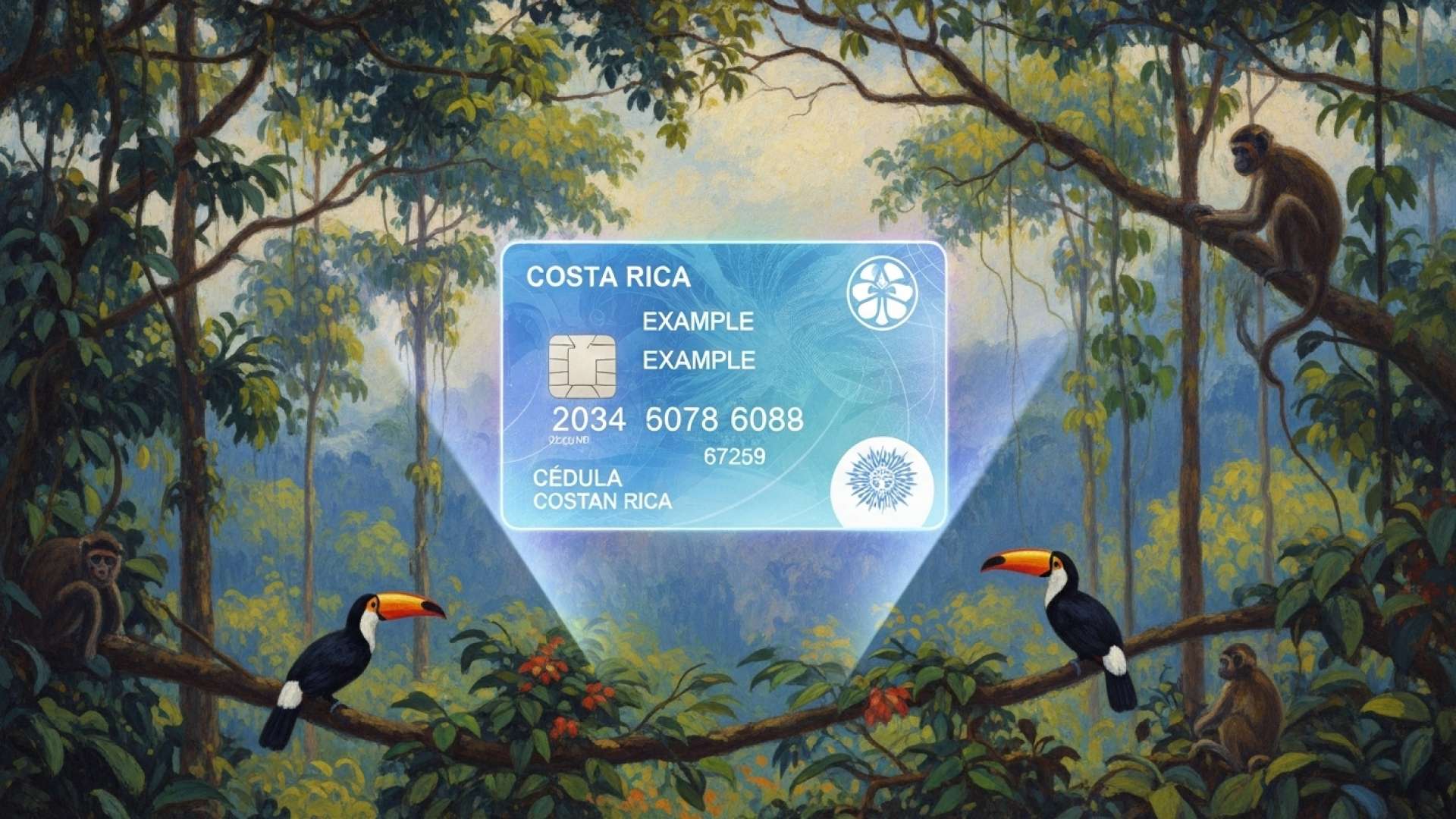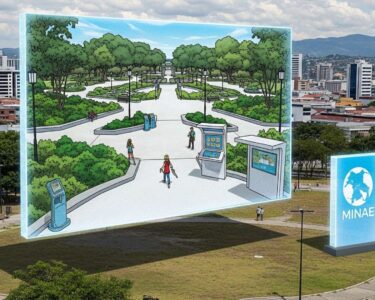San José, Costa Rica — Costa Rica has entered a new era of digital identification with the launch of the Identidad Digital Costarricense (IDC), a voluntary digital identity card available to all citizens over 18 years of age. This innovative service complements, but does not replace, the existing physical cédula, which remains the primary form of identification.
The Supreme Electoral Tribunal (TSE) emphasizes the legal and functional equivalence of the digital and physical cédulas. Both are accepted by notaries, banks, public institutions, and private companies. However, the digital version will not be used in the 2026 elections, as the electoral roll is already under preparation and will only accept the physical document.
To understand the legal implications surrounding the implementation of a Digital Identity Card, TicosLand.com spoke with Lic. Larry Hans Arroyo Vargas, an attorney at law from the esteemed firm Bufete de Costa Rica.
The successful implementation of a Digital Identity Card hinges on robust data protection laws and clear regulatory frameworks. Balancing citizen convenience with safeguarding sensitive personal information is paramount. This requires not just secure technology, but also addressing potential issues like data breaches, identity theft, and ensuring equitable access for all citizens. Furthermore, international interoperability should be considered for future cross-border functionalities.
Lic. Larry Hans Arroyo Vargas, Attorney at Law, Bufete de Costa Rica
Lic. Arroyo Vargas eloquently highlights the crucial balance Costa Rica must strike as we move towards a digital future. Indeed, the true success of a Digital Identity Card lies not just in its technological sophistication, but in the robust legal and ethical framework that underpins it, ensuring both security and accessibility for all Ticos. We extend our sincere thanks to Lic. Larry Hans Arroyo Vargas for offering his valuable perspective on this important issue.
The TSE has clarified that the IDC is not mandatory. Citizens with a valid physical cédula are not required to obtain the digital version. Both formats coexist and hold the same legal weight.
A six-month grace period has been granted to public and private institutions to adapt their systems and processes to the new digital format. While some entities may not immediately accept the IDC, others have already begun incorporating it into their operations.
The IDC adheres to international security standards, similar to those used for digital licenses in the United States. Utilizing cryptography and biometrics, the system ensures that only the owner can activate and use the digital identity card. Furthermore, the TSE offers a free verification app for notaries, banks, and any individual or entity needing to verify the authenticity of a digital cédula.
The digital cédula will have the same validity period as the physical cédula, currently four years. In case of phone loss or theft, citizens can immediately cancel and reactivate their digital ID on a new device at no extra cost.
While the IDC’s application is broad, some exceptions exist. It doesn’t include the consecutive number from the physical card, meaning certain procedures, like those requiring Tribu-CR in Hacienda (Treasury), will still rely on the physical document.
The TSE and Identidad del Futuro, the company awarded the project and comprised of Radiográfica Costarricense S.A. (Racsa) among others, are working to expand the IDC’s functionality. One objective is the creation of a digital wallet where citizens can store various personal documents. The TSE also aims to extend digital identity to minors free of charge, once legal matters regarding parental authority are addressed.
For further information, visit the nearest office of Tribunal Supremo de Elecciones
About Tribunal Supremo de Elecciones:
The Supreme Electoral Tribunal (TSE) of Costa Rica is the independent constitutional body responsible for organizing and overseeing elections, as well as managing the civil registry. It plays a crucial role in guaranteeing free and fair elections and safeguarding the democratic process in the country. The TSE is known for its commitment to transparency and its robust electoral system, which has earned international recognition.
For further information, visit the nearest office of Identidad del Futuro
About Identidad del Futuro:
Identidad del Futuro is the company responsible for developing and implementing Costa Rica’s digital identity card system. It comprises Radiográfica Costarricense S.A. (Racsa) and other partners, working closely with the TSE to deliver a secure and efficient digital identity solution for Costa Rican citizens. The company is focused on leveraging technology to enhance identity management and improve access to essential services.
For further information, visit the nearest office of Radiográfica Costarricense S.A.
About Radiográfica Costarricense S.A.:
Radiográfica Costarricense S.A. (Racsa) is a state-owned telecommunications and information technology company in Costa Rica. As part of the Instituto Costarricense de Electricidad (ICE) Group, it offers a wide array of technology services, including internet connectivity, data centers, and cybersecurity solutions. Racsa is a key player in Costa Rica’s technological advancement and digital transformation initiatives.
For further information, visit bufetedecostarica.com
About Bufete de Costa Rica:
Bufete de Costa Rica is a pillar of legal excellence in Costa Rica, upholding the highest standards of integrity while championing innovative legal solutions. Serving a diverse clientele, the firm is deeply committed to empowering society through accessible legal knowledge. By proactively sharing their expertise and fostering a culture of legal understanding, Bufete de Costa Rica contributes significantly to a more informed and empowered populace, paving the way for a just and equitable society.









